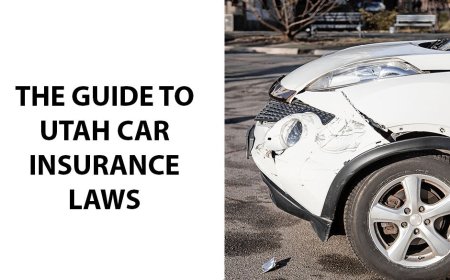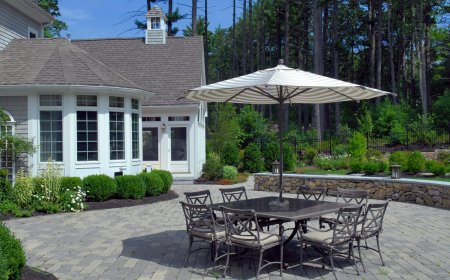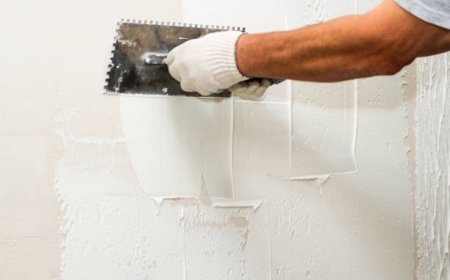Exploring PCP Air Rifles and Taser Guns: Technology, Uses, and Considerations in South Africa
Imagine standing in the South African bush, the air crisp and the target in sight, or walking through a bustling city, prioritizing personal safety with confidence.

Imagine standing in the South African bush, the air crisp and the target in sight, or walking through a bustling city, prioritizing personal safety with confidence. Whether you're a sports shooter honing your skills or someone seeking reliable self-defense, tools like PCP air rifles and taser guns offer precision, power, and peace of mind. In this blog, well dive into the fascinating world of Pre-Charged Pneumatic (PCP) air rifles and taser guns, exploring their technology, applications, and key considerations for South African users. From the mechanics of compressed air to the ethics of non-lethal defense, well cover everything you need to know to make informed decisions, whether youre browsing options at BNT Online or weighing your choices for sport or safety.
What Are PCP Air Rifles?
PCP air rifles, or Pre-Charged Pneumatic rifles, are advanced airguns that use a reservoir of compressed air to propel pellets with remarkable accuracy and power. Unlike traditional spring-powered air rifles, which rely on a spring and piston mechanism, PCP rifles store high-pressure air (typically 2,000 to 3,000 psi) in an onboard tank, delivering consistent energy for multiple shots without manual cocking. This technology, dating back to the 1500s with the Austrian Girandoni rifle, has evolved into modern designs favored for hunting, target shooting, and pest control. In South Africa, where outdoor activities like hunting and sport shooting thrive, PCP rifles from retailers like BNT Online are popular for their versatility.
The mechanics are straightforward yet sophisticated: a hammer strikes a valve to release a controlled burst of compressed air, propelling the pellet through the barrel. This results in low recoil, high accuracy, and the ability to fire multiple shotssome models, like the AirForce Texan, boast over 800 foot-pounds of energy, capable of taking down large game like wild boar. South African enthusiasts appreciate PCP rifles for their precision in competitions, such as Extreme Benchrest, where calibers up to .30 inches are used at ranges up to 75 yards.
Applications of PCP Air Rifles in South Africa
PCP air rifles shine in diverse applications, making them a staple for South African shooters. For hunting, their high power and accuracy make them ideal for small to large game. Models like the FX Impact mk2 are praised for their performance in taking down pests like jackals or even larger animals, provided the correct caliber and pellet are used. In South Africas rural areas, farmers rely on these rifles for pest control, protecting crops and livestock from invasive species like pigeons or rodents.
Target shooting is another major draw, with PCP rifles dominating events like the ISSF 10-meter air rifle competitions due to their consistent velocity and minimal recoil. South African shooting clubs, such as those affiliated with the South African Air Rifle Association, often feature PCP rifles in their events, fostering a growing community of precision shooters. Additionally, recreational plinkinginformal target practiceappeals to hobbyists, with affordable options like the Gamo Arrow .177 PCP offering fun at a lower price point.
Advantages and Challenges of PCP Air Rifles
The advantages of PCP air rifles are compelling. Their low recoil enhances comfort and accuracy, making them suitable for extended shooting sessions. Multi-shot capability, often with magazines holding 10-20 pellets, allows rapid follow-up shots, crucial for hunting scenarios. Their accuracy is unmatched, with consistent air pressure ensuring each shot maintains similar velocity, vital for competitive shooting. For example, the Daystate Red Wolf is celebrated for its precision in field target shooting.
However, challenges exist. Initial costs can be high, with quality PCP rifles ranging from R10,000 to over R30,000, plus accessories like pumps or compressors (a Yong Heng compressor costs around R5,000). Maintenance requires expertise, as PCP rifles are complex and often fitted with anti-tamper devices in regions with power restrictions. Refilling the air tank demands a reliable sourcemanual pumps, scuba tanks, or electric compressorsadding to the operational cost. In South Africa, where access to diving shops or specialized retailers may be limited outside urban centers, this can be a logistical hurdle.
Understanding Taser Guns: Non-Lethal Self-Defense
Shifting gears, taser guns offer a non-lethal alternative for personal safety, increasingly relevant in South Africas urban and suburban settings. Tasers, available through retailers like BNT Online, use electroshock technology to deliver a high-voltage, low-amperage electric pulse that temporarily disrupts muscle function, incapacitating a target without causing permanent harm. Unlike firearms, tasers are designed to de-escalate threats, making them a popular choice for security-conscious individuals.
A taser works by firing two barbed probes that deliver an electric current, causing neuromuscular incapacitation for about 5-30 seconds, allowing the user to escape or seek help. Modern tasers, like those from TASER International, often include features like laser sights and built-in flashlights, enhancing usability in low-light conditions. In South Africa, where crime rates remain a concernStatistics South Africa reported 45,000 robberies in 2023tasers provide a legal, non-lethal option for self-defense, especially in areas like Johannesburg or Cape Town.
Uses and Legal Considerations of Tasers in South Africa
Tasers are primarily used for personal self-defense, offering a safer alternative to firearms for civilians. Security personnel, such as private guards, also use tasers to subdue threats without lethal force, aligning with South Africas strict firearm regulations under the Firearms Control Act of 2000. For example, a taser can be a lifesaver in a home invasion scenario, providing enough time to alert authorities without escalating to deadly force.
However, legal considerations are critical. In South Africa, tasers are classified as less-lethal weapons and are legal for civilian use, but users must adhere to regulations, such as not carrying them in restricted areas like government buildings. Proper training is recommended to ensure safe and effective use, as misuse can lead to legal repercussions. Retailers like BNT Online provide guidance on legal usage, emphasizing responsible ownership. Always check local laws, as regulations may vary by province.
Comparing PCP Air Rifles and Tasers: Purpose and Practicality
While PCP air rifles and taser guns serve distinct purposes, comparing them highlights their unique roles. PCP rifles are tools for sport and utility, excelling in controlled environments like shooting ranges or hunting grounds. Their high cost and maintenance needs make them a commitment for enthusiasts, but their precision and power are unmatched. Tasers, conversely, are compact, user-friendly tools designed for immediate self-defense, requiring minimal training but offering limited range (typically 15-25 feet).
In South Africa, the choice depends on your needs. A farmer in the Free State might invest in a PCP rifle for pest control, while a city dweller in Durban might prefer a taser for personal safety. Both require responsible usePCP rifles demand safe storage to prevent unauthorized access, while tasers require careful handling to avoid accidental discharge. Retailers like BNT Online offer both, catering to these diverse needs.
Choosing the Right Tool for Your Needs
Selecting between a PCP air rifle and a taser depends on your goals and lifestyle. For sport shooters or hunters, consider factors like caliber (.177 for target shooting, .22 or .25 for hunting), air tank capacity, and budget. Brands like FX Airguns or AirForce offer reliable options, available through BNT Onlines PCP rifles. For self-defense, evaluate taser range, battery life, and ease of carrymodels like the TASER Pulse are compact and effective.
Research is key. Read reviews on platforms like Airgun Maniac or visit local shooting clubs to test PCP rifles. For tasers, consult with security experts or retailers to understand features like probe distance or rechargeability. In South Africa, where outdoor sports and safety concerns coexist, both tools have a place, but aligning them with your specific needs ensures maximum value.
Ethical and Safety Considerations
Both PCP air rifles and tasers guns carry ethical and safety responsibilities. For PCP rifles, safe handling is paramountalways treat them as loaded, store them securely, and use appropriate backstops during practice to prevent accidents. In South Africa, where air rifles dont require a license for low-power models, responsible ownership is still critical to avoid misuse.
Tasers, while non-lethal, must be used judiciously. Deploying a taser in a non-threatening situation can lead to legal consequences, and users should prioritize de-escalation. Training courses, often offered through security firms, can enhance safe usage. Retailers like BNT Online emphasize education, ensuring customers understand the ethical weight of their tools.
Conclusion
PCP air rifles and taser guns represent cutting-edge solutions for distinct needs in South Africaprecision and power for sport or utility, and non-lethal protection for personal safety. PCP rifles offer unmatched accuracy for hunting and shooting, while tasers provide peace of mind in high-risk environments. By understanding their technology, applications, and responsibilities, you can make informed choices that align with your lifestyle. Explore options at BNT Online to find the right tool, whether youre aiming for a bullseye or prioritizing safety. Share your thoughts in the comments, or contact BNT Online to learn more about their range of PCP rifles and tasersyour next adventure or safety solution awaits!
Frequently Asked Questions (FAQ)
1. What is the difference between a PCP air rifle and a traditional air rifle?
A PCP air rifle uses a pre-charged air reservoir to propel pellets, offering low recoil, high accuracy, and multi-shot capability. Traditional air rifles, like springers, rely on a spring and piston, requiring cocking per shot and producing more recoil, making PCPs ideal for precision tasks like hunting or target shooting.
2. Are PCP air rifles legal in South Africa?
Yes, PCP air rifles are legal in South Africa for civilian use, typically without a license for models under 7 joules of energy. Always check local regulations, as higher-powered rifles may require permits, especially for hunting.
3. How often do I need to refill the air tank on a PCP rifle?
Refill frequency depends on the rifles tank size and shooting volumemost provide 20-100 shots per fill. For example, a 200cc tank at 3,000 psi might need refilling after 50 shots, using a hand pump, scuba tank, or compressor.
4. Are tasers legal for self-defense in South Africa?
Yes, tasers are legal for civilian self-defense in South Africa, classified as less-lethal weapons. Users must follow regulations, avoid restricted areas, and use them responsibly to comply with the Firearms Control Act.
5. Can a taser be used multiple times?
Most tasers, like those from BNT Online, allow multiple uses if equipped with replaceable cartridges. After firing, replace the cartridge and ensure the battery is charged for subsequent use.
6. What maintenance does a PCP air rifle require?
PCP rifles require regular cleaning of the barrel, checking seals for leaks, and ensuring the air tank is filled with clean, dry air to prevent corrosion. Professional servicing is recommended for complex repairs due to their engineered design.






































